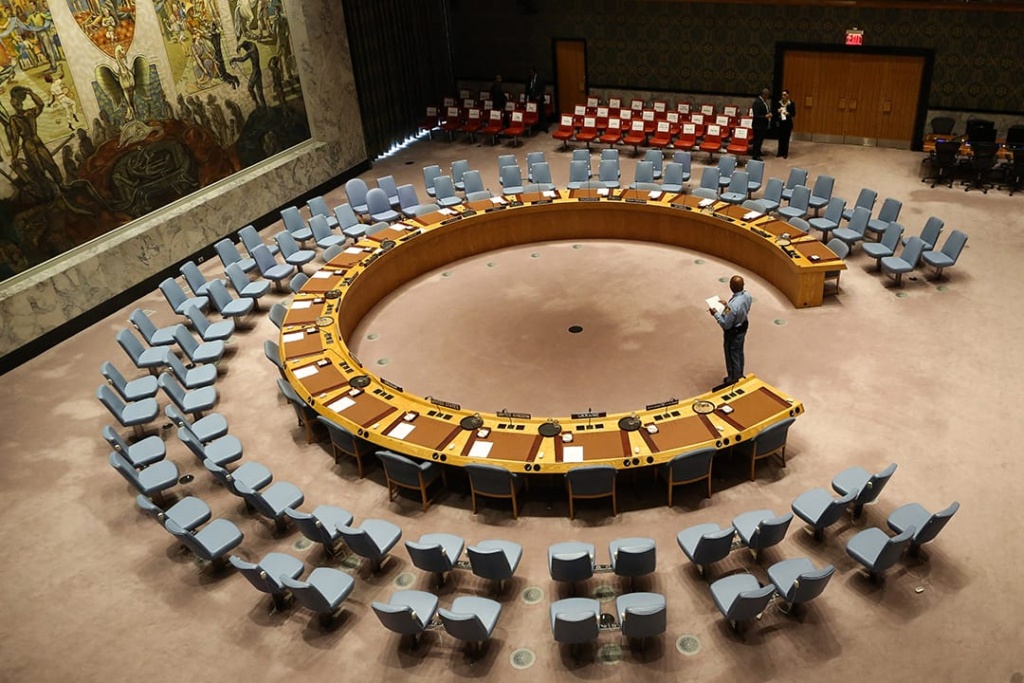
By Olakunle Agboola – The African Union (AU), along with several African nations, has decisively rejected a recent proposal from the United States regarding United Nations Security Council (UNSC) reform. The U.S. proposal offered permanent seats to African countries on the UNSC but without veto power, sparking a heated debate on fairness, equity, and the future of global governance. Africa’s firm stance signals a broader push for justice and equality in international decision-making forums.
The Need for UNSC Reform
The United Nations Security Council, tasked with maintaining global peace and security, is one of the most powerful institutions within the UN system. Established after World War II, the current structure reflects a world order from that era, granting five countries – the United States, the United Kingdom, Russia, China, and France – permanent membership with veto power. The remaining ten members are elected for two-year terms without veto rights.
Over the years, calls for reform have intensified as the geopolitical landscape has changed. Critics argue that the UNSC’s structure disproportionately empowers a few nations while sidelining developing countries, particularly from Africa, Asia, and Latin America. Africa, home to 54 UN member states, has long been excluded from permanent membership, despite its significant representation in the global body.
Africa’s Rejection of the U.S. Proposal
The U.S. proposal, while offering African nations permanent seats on the UNSC, denied them veto power. This concession was framed as a compromise, allowing for increased regional representation without diluting the influence of the existing permanent members. However, African leaders and the AU have rejected this proposal, seeing it as a symbolic gesture without real power.
South Africa’s Former Foreign Minister, Naledi Pandor once summarized Africa’s position: “We are not interested in being token members of the Security Council. Africa must be treated as an equal player, not as a secondary actor.” African nations argue that without veto power, permanent seats would be largely ceremonial, lacking the authority to meaningfully influence key decisions on international peace and security.
The Ezulwini Consensus: Africa’s Stand on UNSC Reform
The African Union’s official stance on UNSC reform is encapsulated in the Ezulwini Consensus, adopted in 2005. This document demands full permanent membership for Africa, including veto power, calling for at least two permanent seats and five non-permanent seats for African nations. The AU’s insistence on veto power stems from a long history of global decisions affecting Africa being made without African input, including those on conflict resolution, sanctions, and peacekeeping operations.
For African leaders, this demand is not merely about prestige but about ensuring Africa’s voice is heard in critical global decisions. Granting permanent seats without veto rights would perpetuate Africa’s marginalization in global governance, a dynamic African nations are increasingly unwilling to accept.
Global and Geopolitical Implications
Africa’s rejection of the U.S. proposal carries significant geopolitical weight. It marks a growing shift in how African nations approach international relations, particularly in their engagements with global powers. Traditionally, Africa’s relations with Western powers, especially the United States, have been defined by an asymmetrical dynamic. The rejection of the proposal highlights Africa’s determination to assert itself as an equal player on the global stage, rather than a passive participant.
This development also aligns Africa with other global players, such as China and Russia, who have advocated for broader UNSC membership. While neither China nor Russia has explicitly supported extending veto rights to new members, their backing of Africa’s broader demand for representation could deepen ties between the continent and these nations.
Challenges in the Path to UNSC Reform
Reforming the UNSC is no simple task. Any amendment to its structure requires a two-thirds majority in the UN General Assembly and the agreement of all five permanent members, each of whom holds veto power. Historically, existing permanent members have been reluctant to dilute their exclusive rights, particularly veto power.
While Africa’s demands for full membership are justifiable, they face significant resistance. No current permanent member is eager to share the veto privilege, and achieving consensus on this issue will require sustained diplomacy, strategic alliances, and persistent pressure from the global south.
Despite these challenges, Africa’s principled stance is reshaping the global conversation on UNSC reform. By rejecting tokenism and pushing for equality, African nations are playing a central role in advocating for a more inclusive and just international system.
Africa’s Stand
Africa’s rejection of the U.S. proposal for UNSC permanent seats without veto power is more than a diplomatic disagreement; it reflects a larger demand for equity and justice in global governance. As the world increasingly shifts towards a multipolar order, African nations are asserting their rightful place in the international system. Africa’s insistence on full membership, with veto rights, is a call for a fairer and more representative UNSC. The outcome of this debate will have lasting implications for the future of global governance and Africa’s role within it.










